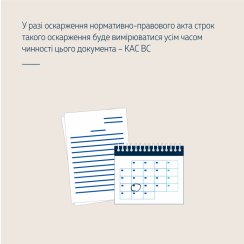Contact center of the Ukrainian Judiciary 044 207-35-46

“Owners of Small Architectural Forms (Kiosks) in the Metro” civil organization appealed in cassation procedure the judgments of courts of first and appeal instances, which had dismissed its complaint due to the omission of the term for application to court.
In its claim to the Ministry of Justice of Ukraine, the Ministry of Infrastructure of Ukraine the civil organization demanded to acknowledge as unlawful the Fire Protection Regulations in the Metro, approved with the Order of the Ministry of Infrastructure of Ukraine No. 335 of 20 June 2012, registered in the Ministry of Justice of Ukraine upon No. 1128/21440 on 9 July 2012, in the part of item 2.19 of Paragraph 16, and to oblige to perform certain actions.
Courts of lower instances concluded that the plaintiff had had to get to know about the violation of rights, freedoms or interests of individuals and rights and interests of legal entities by the disputable normative-legal act, since the Regulations had been published in July 2012, but the civil organization had submitted its claim in three years after that. Part 2 of Article 99 of the Code of Administrative Procedure of Ukraine (as amended by 15 December 2017) fixes six-month term for the application to administrative court, which, unless otherwise noted, should be calculated from the day, when the person got to know or had to get to know about the violation of his/her rights, freedoms or interests.
The Supreme Court represented by the panel of judges of the Administrative Cassation Court has cancelled the judgements of lower courts and ordered the review of the case; therefore, the Supreme Court has upheld the complaint of the plaintiff partially in the view of following.
The Court, taking into account the essence and features of the normative-legal act, has noted that the action of the normative-legal act was permanent for a long time and was not restricted with its single application.
The fact of the violation of rights, freedoms or interests, in case of action of the present normative-legal act, may have long-term nature. Since the present normative-legal act may cause the long-term violation of subjective rights, freedoms or interests, correspondingly, the term for application to administrative court to protect an individual’s rights, freedoms or interests should be calculated from the whole period of action (duration of validity) of the normative-legal act.
Thus, while calculating the term for application to administrative court with a claim on appealing a normative-legal act, it is necessary to take into account its repeated application and continuing action (continuing validity); the reality of the fact of being a subject in relations regulated by the normative-legal act; the date of factual violation of rights, freedoms or interests, in other words, when exactly the individual (claimant) got to know or had to get to know about the violation of his/her rights, freedoms or interests; whether the normative-legal act, by which rights, freedoms or interests of the individual (claimant) were violated, is valid; whether the individual (claimant) has legal relations regulated by the normative-legal act appealed in administrative court; when the individual (claimant) started the legal relations regulated by the normative-legal act, and when they were terminated.
In case of being the individual (claimant) in a relationship regulated by the normative-legal act appealed in administrative court, the term for submitting a claim to administrative court may not be restricted by six months provided in Part 2 of Article 99 of the Code of Administrative Procedure of Ukraine. In case of appealing a normative-legal act, the term for such appealing will be calculated with the whole period of validity of this normative-legal act.
Resolution of the Supreme Court of 13 March 2020 in the Case No. 826/27282/15 (administrative proceeding No. К/9901/12430/18) – http://www.reyestr.court.gov.ua/Review/88187372